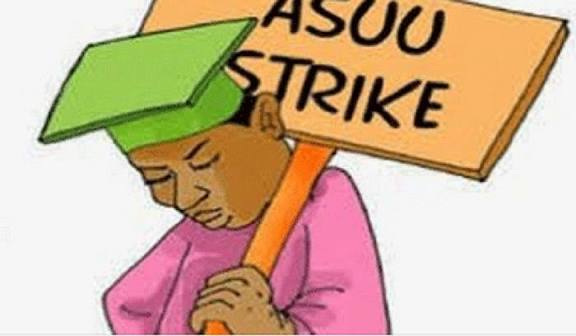Nigeria’s Federal Government Appeals to ASUU to Avert Nationwide Strike: A Plea for Stability in Education

In a critical moment for Nigeria’s education sector, the Federal Government has issued an urgent appeal to the Academic Staff Union of Universities (ASUU) to reconsider its planned nationwide strike, emphasizing the need to prioritize the future of millions of students. The announcement, made on October 7, 2025, comes as tensions between the government and the union intensify over unresolved welfare and funding issues. Dr. Tunji Alausa, the Minister of Education, underscored President Bola Tinubu’s directive to safeguard the nation’s education system, warning that a strike could deepen existing learning losses and further destabilize an already strained sector.
The Context: A Fragile Education System
Nigeria’s tertiary education system faces persistent challenges, from inadequate funding to crumbling infrastructure and delayed staff payments. ASUU, a powerful voice for university lecturers, has repeatedly clashed with the government over unmet agreements, including the revitalization of public universities and improved welfare for academic staff. The threat of a strike in October 2025 is the latest chapter in this long-standing saga, with the union signaling its frustration over stalled negotiations.
The potential fallout is dire. With an estimated 18-24 million children already out of school nationwide—many in the northern regions—disruptions in higher education could exacerbate Nigeria’s learning crisis. Strikes often lead to prolonged academic calendar disruptions, leaving students stranded and undermining public trust in the system. The government’s plea reflects an awareness of these stakes, but can it deliver on its promises to avert the crisis?
Government’s Response: Dialogue and Directives
Dr. Alausa emphasized that the Tinubu administration is actively engaging ASUU to address its demands. “The President has directed that we prioritize the education of our children and ensure stability in our universities,” he stated during a press briefing. The Minister highlighted ongoing negotiations, which include discussions on salary arrears, university autonomy, and funding for infrastructure upgrades. While specifics remain scarce, the government’s tone suggests a commitment to dialogue over confrontation.
This appeal comes alongside broader education reforms, including the recent launch of the Education Reform Initiative and the Ministerial Project Approval Board (MPAB) on October 7. These initiatives aim to boost transparency and attract private investment to modernize facilities and integrate digital learning. The government hopes such measures will signal long-term commitment to ASUU’s demands for systemic improvements.
The Stakes for Students and Society
A strike would have far-reaching consequences. For students, it means delayed graduations, disrupted career plans, and increased financial burdens for families already stretched thin. For lecturers, it’s a fight for fair wages and better working conditions in an underfunded system. Beyond the campuses, the ripple effects could undermine Nigeria’s economic and social stability, as an educated workforce is critical to addressing challenges like unemployment and technological transformation in the AI-driven global economy.
Public sentiment, as reflected in recent discussions on platforms like X, shows frustration from both sides. Students and parents are pleading for resolution, while some academics argue that strikes are the only leverage ASUU has to force government action. The debate underscores a deeper issue: the need for sustainable funding models for education in a country where budget allocations for the sector remain below UNESCO’s recommended 15-20% of national budgets.
A Path Forward?
The government’s appeal to ASUU is a call for compromise, but it hinges on tangible progress in negotiations. The establishment of the MPAB and partnerships like the AWS Academy expansion signal a willingness to innovate, but these are long-term measures. ASUU’s decision will likely depend on immediate concessions, such as clearing salary backlogs or releasing stalled revitalization funds.
As the nation watches, the hope is that both parties can find common ground to keep lecture halls open and students learning. The stakes are too high for another prolonged disruption. For now, the Federal Government’s message is clear: education must come first. Whether ASUU agrees remains to be seen.

























Comments
This post currently has no comments.